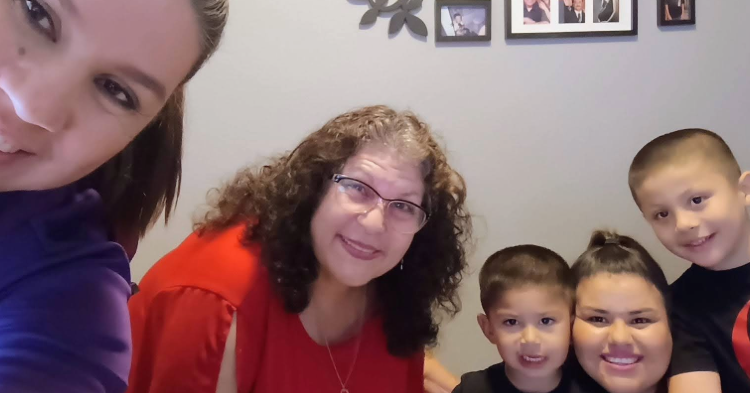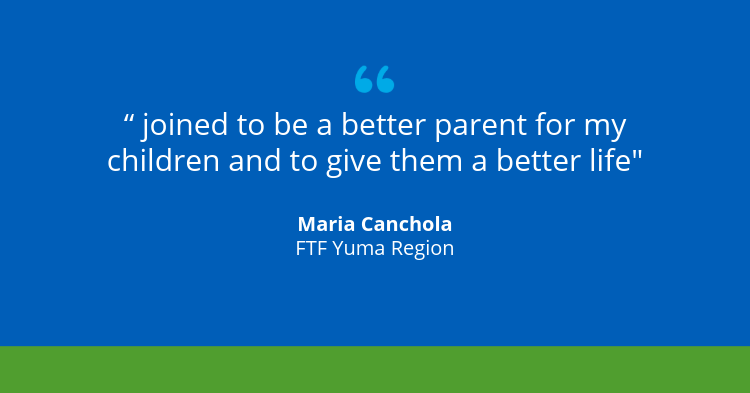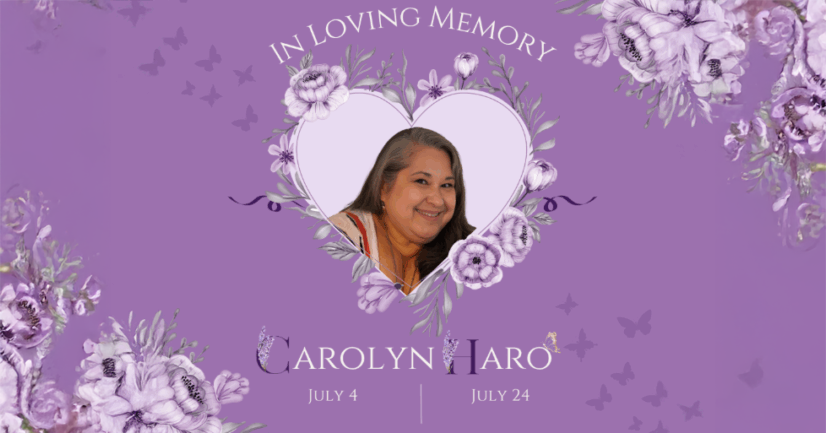
Grandmother Margarita Vargas has dedicated much of her life to caring for the children of Yuma families in her home. For years, she enjoyed closely watching the development and growth of the boys and girls in her charge.
After some 30 years as a child care provider, she decided it was time to retire. But a momentous event in her family soon pulled her back into caregiving. A daughter had her first son, and then a second. Vargas has cared for the two young brothers, 5-year-old Ryo, and 4-year-old Ryzek Navarro, since they were born.
When she learned of the Family, Friend and Neighbor program, she registered for the 10-week program. Vargas figured she could gain access to even more tools to provide good care for her grandchildren.
Family, Friend and Neighbor Care, also known as FFN, provides support to informal caregivers who are caring for a group of four or fewer children, birth to age 5, in a home setting.
Across the nation, about 60% of children under age 5 are cared for by this type of informal caregiving. Many parents choose FFN care because these caregivers often know the children best and can provide a loving, familiar environment that helps them feel safe.
For State Fiscal Year 2025, in the FTF Yuma Region, about 120 caregivers participate in the FFN program through the Arizona Children’s Association, the FTF grant partner that is funded to implement the program.
The program includes weekly home visits with a parent educator, an activity Vargas calls a positive experience. “It’s been really helpful,” she said in Spanish. “It’s helped refresh my memory.”
Sayda Alvarez, a program supervisor with the Arizona Children’s Association, said child care providers like Vargas play a key role in the development of the young children they care for at home.
“We tell them ‘you’re not just a babysitter; you have a big impact on this child,’” Alvarez said. From birth to age 5, a child’s brain grows more rapidly than at any other time in life, making this a crucial period to prepare children for continued learning and life success, Alvarez said. During home visits, caregivers like Vargas learn about children’s various developmental stages as they grow. Classes also focus on health, home safety and nutrition.
Vargas said the program has helped better understand the different child development stages and their growing cognitive abilities. She’s also learned various other techniques to promote a calm, stable environment for her grandchildren. For example, better managing her grandchildren’s high energy levels and occasional tantrums with structured routines and distractions.
“I’m really glad for this program,” Vargas said, adding that all the classes offer some value.
“Sometimes a caregiver might be struggling with certain components of caregiving and they can ask another caregiver, ‘How do you handle these circumstances?’ or ‘What does this look like in your home? What have you found helpful?’” Alvarez said. “They can share resources, but sometimes the mental health aspect of just talking with someone who is doing what you’re doing is invaluable.”




